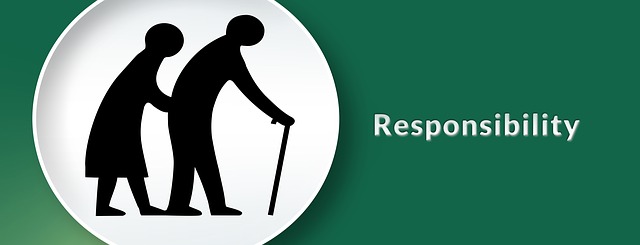Some Chinese parents that are steeped in Confucian values often see their children as the main source of retirement funds. This can be a stressful burden to carry, especially if you are a young adult struggling with multiple financial commitments. Therefore, I have devoted a considerable amount of time learning how to grow my parents’ retirement funds and minimise household expenses. So here are 4 ways that your parents can also grow their retirement savings.
- Minimise Expenses Via Various Senior Citizen Perks

Image Credit: NTUC FairPrice
For a start, I examined how my parents can reduce their household expenditure. For instance, I recently learnt that NTUC FairPrice offers 3% discount to Pioneer Generation members every Monday. If your parents are not Pioneer Generation members, fret not as those over 60 years old enjoy a 2% discount every Tuesday as well. Similarly, if your parents are over 60 years old, they can also apply for senior citizen concession travel cards. This will entitle them to significant discounts on public transport compared to a usual adult fare card. These are all schemes that my mother can tap on from next year onwards.
For Singaporeans aged over 65, do not overlook the outstanding benefits that come with the Pioneer Generation Package. Amongst the various benefits, it provides subsidised medical and dental services at CHAS participating clinics. These subsidies should help to alleviate healthcare costs. If your parents are not aware of these schemes, you may like to inform and even assist them in the application of these concession cards. A little savings here and there will ultimately add up and go a long way to reduce the household’s daily expenses.
- Grow Their Retirement Funds By Leaving Monies in their CPF Accounts
Ask any Singaporean or Permanent Resident and they will tell you that age 55 is a significant milestone in their lives. It is not so much about celebrating yet another year in their lives, but rather, it marks the day where they can dip their hands into the pot of gold that they have painstakingly built up during their working years. Yes, I am referring to the CPF. At age 55, CPF members can withdraw:
- up to $5,000, or any balance in their Ordinary and Special Account savings above the Full Retirement Sum[1] (‘FRS’), whichever is higher; and
- any Retirement Account savings (excludes any top-up monies, government grants, and interest earned) above the Basic Retirement Sum (‘BRS’) if accompanied by a sufficient property charge or For more information, please refer to CPF’s website.
The temptation is indeed great, but do pause for a second and have your parents assess whether they truly need the money at that juncture.
If your parents are over age 55, choosing to leave their monies in CPF ensures that:
- They enjoy an additional 1% interest on the first $30,000 in their combined CPF balances. This is on top of the prevailing Retirement Account interest rate of 4% and the additional 1% interest on the first $60,000 of combined CPF balances applicable to all CPF members. This easily beats any existing interest rate offered by commercial banks. Moreover, the principal and interest are guaranteed by the government, a rock solid triple AAA rated institution.
- Even if they do not withdraw any amount at 55 years old, they can still do so anytime later. Therefore, there is no hurry to decide on the withdrawal of excess funds.
Furthermore, your parents also have the option to start their CPF LIFE payouts later, up to age 70[2]. For each year deferred, their CPF LIFE monthly payouts may increase up to 7%,guaranteeing them a larger monthly payout thereafter. Therefore, if your parents are gainfully employed at that juncture, it may be a superior proposition to leave their monies with the CPF.
A good example would be my father- in-law. He turned 55 recently but chose not to withdraw the excess sum after setting aside the FRS. He realised that he would earn an interest rate that is higher than if he were to leave the excess sum under the fixed deposit schemes offered by commercial banks. This is a very prudent decision that will add to his retirement funds.
- Grow Their Retirement Funds With Silver Housing Bonus
Some retiring parents face the problem of being cash-poor but asset-rich. They have insufficient retirement funds but may own a property that has appreciated substantially in capital value. The government has introduced the Silver Housing Bonus to incentivise this group of people to unlock the value of their property and to ensure members have a lifelong income. It was introduced to help lower-income elderly households supplement their retirement funds when they “right-size” their flats. Eligible households can receive up to $20,000 cash bonus when the net sales proceeds are used to top up the CPF Retirement Account.
This policy is an attractive option for parents whose children have all left the nest and gone on to set up their respective homes. The need for a big house no longer exists. Therefore, it may be a practical option to downgrade to a smaller house in order to receive the $20,000 cash bonus from Silver Housing Bonus, as well as save on utilities, maintenance and conservancy fees at the same time.
For those who are not keen to “right-size” their flats out of sentimental value, there is another way to unlock the value of their property. By participating in the Lease Buyback Scheme, your parents can receive a stream of income to add to their retirement funds while continuing to stay in the property.
- Claim Tax Relief Via The Retirement Sum Topping-Up Scheme (‘RSTU’)
For young adults who have been giving their parents a monthly cash stipend, do consider utilising the CPF Retirement Sum Topping-Up Scheme (‘RSTU’) instead. That is because you may be eligible to receive tax relief and reduce your income tax expense. Do note that the amount of tax relief that you enjoy is the amount of cash that you have contributed to your parents’ Special Accounts or Retirement Accounts (for parents above 55 year old), capped at S$7,000 per annum. This tax relief is applicable only if your recipient’s Retirement Account has not exceeded the current FRS. Cash top-ups beyond the current Full Retirement Sum will not be eligible for tax relief.
Therefore, by depositing cash into your parents’ CPF accounts via the RSTU, you fulfill your duty as a filial child and also receive tax relief! That is killing 2 birds with one stone.
In all honesty, I confess that this is a difficult suggestion to broach. Most parents of that generation still prefer to see cold hard cash as part of their retirement funds. To bridge this gap, you may try to argue that:
- If they have no urgent need for the monthly stipend that you are giving, contributing directly into their CPF accounts earns higher interest rates than what commercial banks give.
- They can still withdraw up to S$5,000 from their CPF accounts from age 55.
- They will be getting higher lifelong monthly income once they start their CPF LIFE payouts.
While the aforementioned all appear to be very objective advantages, my parents remain unconvinced till this day. That is because emotions often play a stronger role in their perspectives of money. For instance, my father sleeps more soundly if his pillow, rather than his CPF, is padded with his retirement funds. But I will continue to nag and hopefully my parents will switch sides one day. Talk about role reversal!
Conclusion
Despite the various ways to grow the retirement funds and minimise household expenses, you may have come to notice that my family and my wife’s family are at different ends of the spectrum. My father-in-law uses his financial literacy to take advantage of the various schemes available in CPF to grow the household’s retirement funds. On the other hand, I am doing my utmost to help my parents play “catch-up” in terms of retirement readiness. But as they say, better late than never.
Profile of writer:
Alison is a young working adult who blogs at HeartlandBoy.com.
[1] As at 2016, Full Retirement Sum is S$161,000 while Basic Retirement Sum is S$80,500.
[2] Note that the payout eligibility age of 65 only applies to members who are born 1954 and after.










